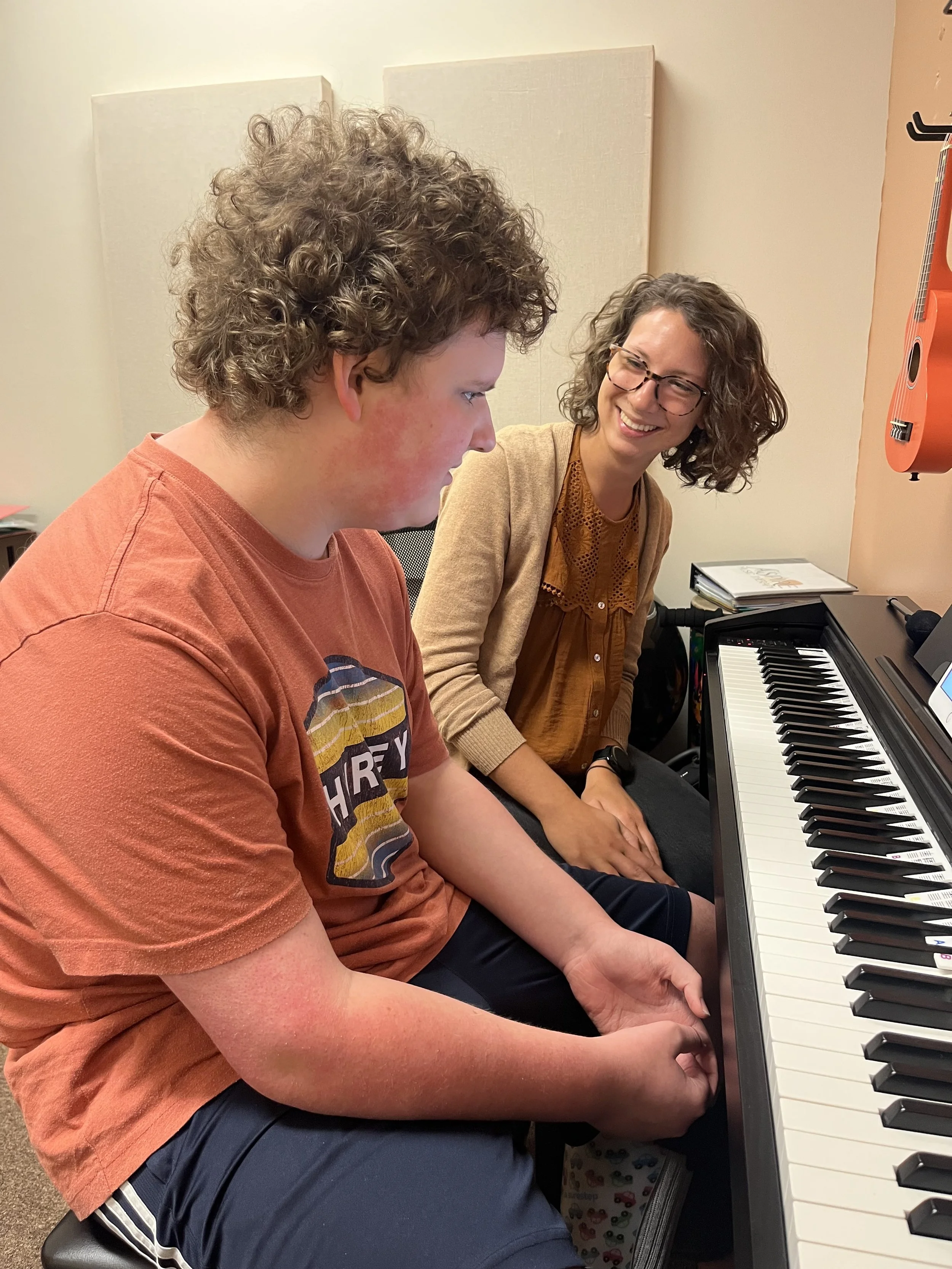WHAT IS MUSIC THERAPY?
Music Therapy is the process of addressing individualized, non-musical goals through music and the therapeutic relationship.
Music therapy can address the physical, mental, and emotional areas of life. Music is meaningful, engaging, and motivating at any age.
The relationship and human connection fostered during a music therapy session is the foundation for the therapeutic process.
MUSIC THERAPY GOALS
Learn
About
Music therapy can support nearly every aspect of growth, health, quality of life and connection.
Every individual has different needs and strengths!
-
A
- Academics
- Activities of Daily Living (ADLs)
- Attention
- Anxiety Management -
B
- Bereavement
- Body Awareness & Movement
- Breath Support -
C
- Communication (Verbal & AAC)
- Cognitive Stimulation
- Confidence
- Coping Skills
- Creativity -
D
- Daily Routines
- Decision-making
- Discharge Planning -
E
- Emotional Expression
- Energy Regulation
- Executive Functioning -
F
- Family Bonding
- Fine Motor
- Flexibility (Mental & Physical)
- Focus & Attention Span -
G
- Goal Setting
- Gratitude
- Gross Motor & Gait Training
- Group Participation -
H
- Hygiene & Self-Care Skills
- Hope & Motivation -
I
- Independence
- Insight & Self-Awareness
- Interpersonal Skills -
J
- Job Skills & Vocational Readiness
-
K
- Kindness & Empathy
-
L
- Learning New Skills
- Life Review
- Listening & Receptive Communication
- Literacy Support -
M
- Memory & Recall
- Mental Health
- Motor Skills -
N
- Nonverbal communication
-
O
- Organizational Skills
- Orientation to Person, Place, & Time -
P
- Pain Management
- Peer Interaction
- Perseverance & Patience
- Physical Endurance
- Procedural Support -
Q
- Quality of Life
-
R
- Reality Orientation
- Recovery Support
- Relationship Building
- Relaxation
- Resiliency -
S
- Sensory Stimulation & Regulation
- Spiritual Support
- Social Skills
- Stress Management -
T
- Teamwork
- Transitions Support
- Turn Taking
- Try New Things -
V
- Verbalizations & Vocalizations
- Validation of Emotions & Experiences -
W
- Wellness & Health
- Worry Reduction



